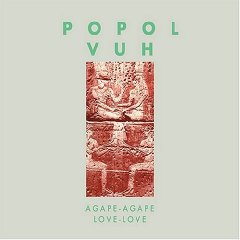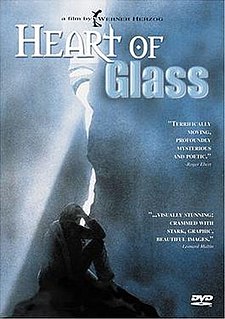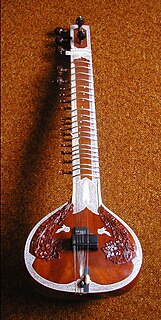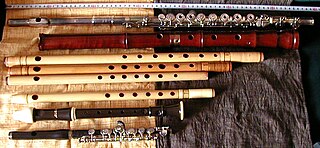Popol Vuh were a German electronic avant-garde band founded by pianist and keyboardist Florian Fricke in 1969 together with Holger Trülzsch (percussion), Frank Fiedler and Bettina Fricke. Other important members during the next two decades included Djong Yun, Renate Knaup, Conny Veit, Daniel Fichelscher, Klaus Wiese and Robert Eliscu. The band took its name from the Popol Vuh, a manuscript containing the mythology of the Post-Classic Quiché Maya people of highland Guatemala and southeast Mexico; the name translates roughly as "meeting place". In the Quiché language Popol Vuh translates as: "Book of the Community", "Book of Counsel", or more literally as "Book of the People".

Aguirre is the seventh album by German band Popol Vuh. It contains music used in the soundtrack to Werner Herzog's film Aguirre, the Wrath of God (1972), first released as an album in 1975 on Ohr, and reissued in 2004 by SPV with one bonus track. This score was the first of many filmic collaborations between the group and Herzog. Only two tracks are from the film; the rest were gathered from various recordings done by the group during the period 1972–74, including alternative versions of two songs originally released on the band's 1974 album, Einsjäger und Siebenjäger.

Hosianna Mantra is the third album by German band Popol Vuh. It was originally released in 1972 on the German record label Pilz.

Seligpreisung is the fourth album by German band Popol Vuh. It was originally released in 1973 on record label Kosmische Musik. The title is the German name for the Beatitudes, from Christ's Sermon on the Mount.

Einsjäger und Siebenjäger is the fifth album by Popol Vuh. It was originally released in 1974 on Kosmische Musik. In 2004 SPV re-released the album with two bonus tracks. "Wo bist Du?" was originally released on Popol Vuh's album Die Nacht der Seele as "Wo bist Du, der Du überwunden hast?".

Das Hohelied Salomos is the sixth album by Popol Vuh. It was originally released in 1975 on United Artists Records. In 2005 SPV re-released the album with three bonus tracks.

Letzte Tage – Letzte Nächte is the eighth album by Popol Vuh. It was originally released in 1976 on United Artists Records. In 2005 SPV re-released the album with three bonus tracks.

Nosferatu is the eleventh album by Popol Vuh and was released as the original motion picture soundtrack of Nosferatu: Phantom der Nacht by director Werner Herzog. It was originally released in 1978 on Egg. In 2004 SPV re-released the album with a slightly different track list and adding four tracks originally released on the Popol Vuh album Brüder des Schattens – Söhne des Lichts.

Brüder des Schattens – Söhne des Lichts is the tenth album by Popol Vuh. It was originally released in 1978 on Brain Records. In 2006 SPV re-released the album with one bonus track that was originally released on the remix compilation Sing, for Song Drives Away the Wolves in 1993. The first two tracks from this album were used for the soundtrack of Werner Herzog's film Nosferatu the Vampyre.

Die Nacht der Seele is the twelfth album by Popol Vuh. It was originally released in 1979 on Brain Records. In 2005 SPV re-released the album with four bonus tracks. "Engel der Luft" and "Im Reich der Schatten" were used in 1982 for the soundtrack of Werner Herzog's film Fitzcarraldo.

Sei still, wisse ICH BIN is the thirteenth album by Popol Vuh. It was originally released in 1981 on Klaus Schulze's record label Innovative Communication. In 2006 SPV re-released the album with one bonus track. "Wehe Khorazin", "Garten der Gemeinschaft", an extract of "Laß los" and "... als lebten die Engel auf Erden" were used in 1982 for the soundtrack of Werner Herzog's film Fitzcarraldo.

Agape – Agape / Love – Love is the fourteenth album by Popol Vuh. It was originally released in 1983 on Uniton. In 2004 SPV re-released the album with one bonus track.

Spirit of Peace is the fifteenth album by Popol Vuh. It was originally released in 1985 on Cicada. The first track was used by Werner Herzog as original motion picture soundtrack for his documentary The Dark Glow of the Mountains about Reinhold Messner.

Cobra Verde is the sixteenth album by Popol Vuh. It was originally released in 1987 on Milan Records as the original motion picture soundtrack of Werner Herzog's Cobra Verde with Klaus Kinski. In 2006 SPV re-released the album with one bonus track.

For You and Me is the seventeenth album by Popol Vuh. It was originally released in 1991 on Milan Records. In 2006 SPV re-released the album with one bonus track.

City Raga is the eighteenth album by Popol Vuh. It was originally released in 1995 on Milan Records.

Cœur de verre is the name of the first studio album recorded by the French singer Hélène Ségara. It was released in 1996, after its first hit single, "Je vous aime adieu", and achieved success in France and Belgium (Wallonia). It provided eight singles, including three hits.

Best Of TH is the first compilation album by German rock band Tokio Hotel, it was released December 14, 2010 internationally, and in Germany on December 13, 2010.
Wolf Conrad "Conny" Veit was a German musician, singer, composer and painter, best known for his appearances in Gila and Popol Vuh. His main instrument was the guitar. His name was misspelled "Conny Veidt" in Gila's first album.


























